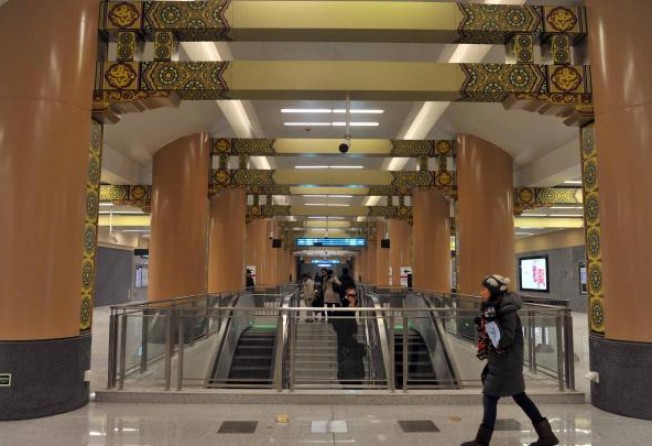
Four new subway lines open in Beijing
Expansion of network aims to ease capital's worsening traffic congestion

Beijing put four subway lines and extensions into operation yesterday as part of the capital's efforts to expand its public urban transport network and ease traffic congestion.

China's economy has quadrupled in size over the past decade, boosting car ownership that has led to clogged roads and forced some cities to impose traffic restrictions. The nation, home to 16 of the world's 20 most polluted cities, according to the World Bank, has this year accelerated approvals for the construction of local transport networks across the country.
As many as 300 million of the nation's 1.4 billion people will move from the countryside by 2030 to join the 600 million already living in cities, according to estimates from the Organisation for Economic Co-operation and Development. Meanwhile, Vice-Premier Li Keqiang is championing urbanisation as a new growth engine.
The National Development and Reform Commission this month approved plans to build 456 kilometres of subway in Changsha, the capital of Hunan province, involving initial investment of 63.7 billion yuan (HK$78 billion) and has allowed similar projects in cities including Fuzhou and Urumqi.
Xian and Lanzhou are among regional capitals in northwestern China building or planning metro systems.
Wuhan, capital of Hubei province, this month opened a subway line under the Yangtze River to link the city's two biggest urban areas. Hangzhou, capital of of Zhejiang, last month opened its first subway line and plans to build another nine by 2020.
Beijing's four new subway lines cost about 83 billion yuan, according to a report on the government's website. The network will extend to 664 kilometres in 2016, connecting all seven newly established districts around the city's main urban area, it said.
With a population of 20 million, Beijing already caps the number of new car registrations and limits the use of private vehicles on designated days based on their licence plate numbers. The city is also planning to build a system for imposing road-congestion charges.
Shanghai, Guangzhou and Guiyang are among cities that also impose restrictions on vehicle ownership. Xian, capital of Shaanxi province, will broaden traffic controls from tomorrow.
Vehicles deemed heavily polluting based on emissions will be banned inside the city's second ring road. They are currently not allowed within the first ring road.